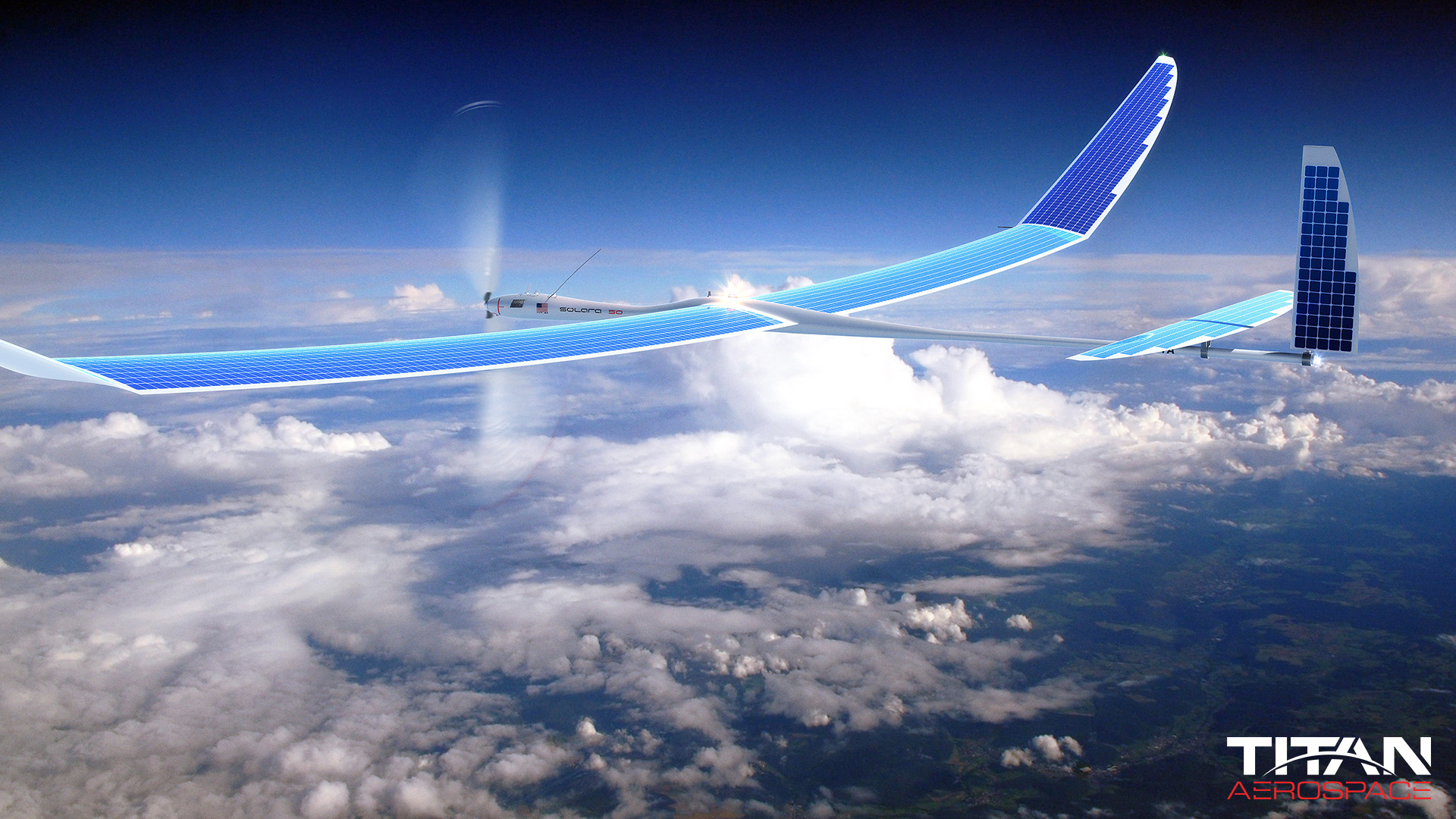Drones make sense for Google but they should terrify you. Here's why
Attack of the drones

The flutter to fill our skies with privately owned, stuff-delivering drones got another major participant today as Google snapped up start-up Titan Aerospace.
Word was Facebook was in talks to buy the solar-powered drone maker earlier this year, but Google put a ring on it once and for all. That's OK, though, since Facebook already has the drone team from Ascenta under its belt.
Google's drone-ings make sense for the company for three reasons. First, Titan's drones are set to gather high-res images of the planet, perfect for depicting deforestation or, highly relevant to users, creating better Maps.
Second, there's the mission to connect more people to the internet, which is at least publicly fueling Facebook's own high-flying ambitions. And finally, it just makes good competitive sense. Why would Google, sitting on mountains of money, let Facebook, Amazon and hordes of smaller firms stake a claim to the clouds when it can too?
But while getting into the drone game is a smart step for Google, it's also terrifying for the rest of us.
Titan fall
Titan claims its solar-powered drones can fly continuously for five years without ever having to land, making them ideal for continually delivering the internet signals Google will use to connect the unconnected and snapping pictures from the stratosphere uninterrupted.
The longevity afforded by a sustainable fuel source make the drones virtually autonomous information-gathering machines. There will naturally be relaying data to and from operators on the ground, but these babies can, in theory, keep circling the globe for half a decade (I say in theory because Titan has yet to actually produce a drone that's flown for that long; an anecdote from the Wall Street Journal has a drone flying for a few minutes 400 feet off the ground).
Sign up for breaking news, reviews, opinion, top tech deals, and more.
The Titan team is headed to work alongside Google's Project Loon, the search company's initiative to build giant, internet-delivering balloons. There's a Planes, Trains and Automobiles vibe to Google's endeavor, but if it wants to beat WhatsApp-owning Facebook to the connection-delivering punch, it has to come at it from inventive angles.
Google's aims may sound altruistic, but the door is open enough for abuse to seep in and bloom. Google's Street View sparked plenty of privacy concerns; how will people feel about unmanned, camera-armed drones flying 65,000 feet above them?
Deliverer of worry
I am all for connecting as many people as possible to the internet if it means enhancing and enriching their lives, but I am dubious of a company - any company - that fundamentally makes its profits from accessing personal information, such as my location, and targeted advertisements.
Throw the potential for surveillance into the mix, and you've got me running for the hills with a tin-foil hat on.
I actually believe Google and Facebook when they say they want to bring those untouched by the internet into the web's folds. However, they tend to leave out the part about how building their own networks that could be used by billions of people will translate into a new boon of profits.
I envision a kind of 21st century Gold Rush where every company that can afford to seeks out fortune by striking mines of broadband and voice calling, all without having to set foot on soil.
Truth be told, they probably see much, much more than brimming bank accounts and happy investors; what a coup it would be for a few billion more people to turn to you as the deliverer of information, the Great Connector in the Sky.
Google the overseer
In our post-NSA-revelations world, it's impossible not to think of surveillance when plans like Google's come to light. Maybe Google will spy on me to sell me eerily relevant goods, or the government is going to find its trusty back doors to peak at what the drones are seeing. Both seem inevitable.
Google has been on a purchasing frenzy the last six months or so, seemingly on a quest to buy its way into every corner of our lives. It bought Nest, AI-firm DeepMind and robotics developer Boston Dynamics, one of seven robotics companies it picked up during an 8-day span in December 2013.
From phones to animal-like robots to thermostats to the skies, is there any part of our world Google doesn't want to control a piece of? It's definitely not alone, and the race of companies like Amazon, Google, Facebook and Apple to be everywhere to everyone is becoming increasingly worrisome.
If and when Amazon, Facebook and Google's drones take flight, I don't doubt the firms will do their best to convince us our privacy is their No. 1 priority. But will we trust them? I can't say I will.

Michelle was previously a news editor at TechRadar, leading consumer tech news and reviews. Michelle is now a Content Strategist at Facebook. A versatile, highly effective content writer and skilled editor with a keen eye for detail, Michelle is a collaborative problem solver and covered everything from smartwatches and microprocessors to VR and self-driving cars.